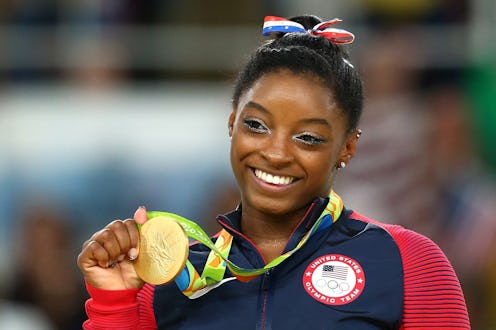Life
We Need To Pay Closer Attention To Women's Sports
If you happened to go on Twitter during the duration of the Rio Olympic games, you probably noticed a waterfall of emotion associated with the U.S. women's gymnastics team and its landslide victory in the team all-around competition — and rightfully so. Those women killed it. But, before the opening ceremony of the Rio Olympics, celebrations of women's gymnastics — or, frankly, any women's sports at all — were fairly few and far between. And, you pretty much never see these sports reach top-trending status on social media any other time of year. To me, this raises an important question: why are the Olympic games the only time we care about female athletes? There are a few possible explanations, but if you ask me, responsibility ultimately lies with us, the viewers.
The most obvious explanation behind why women's sports generate such paltry interest from the general population is that women's sports often generate little media attention outside of huge competitions like the FIFA Women's World Cup and the Olympics. Quick — can you tell me what channel your local WNBA franchise broadcasts games on? If you don't know, it may be because only 14 games are nationally televised throughout the entire regular season. Now, in the spirit of full disclosure, the WNBA season is much shorter than that of the NBA. The women's league plays 204 games each season to the men's 1,230, but even if you compare percentages, last season 12 percent of the men's regular season games were broadcast nationally to the women's 6.8 percent.
Some sports that foster elite female athletes also lack the traditional seasonal format of the more popular sports. Gymnastics, for example, is a year-round sport with major competitions happening throughout the year like the (almost) annual World Artistic Gymnastic Championships. The World Championship doesn't happen in Olympic years, and takes place sometime during the fall, anytime from September through November. The Women's National Collegiate Gymnastics Championships take place in April, with regular season meets from January through the spring.
So, there's a chicken or egg debate that surrounds women's sports. Do women's sports intrinsically and unwaveringly bring in substantially less revenue because there's actually no market for them, or do tickets not sell because the media, endorsement partners, and even publicists for the female athletes and teams themselves, only put any legwork into women's sports once every few years?
Take, for instance, the U.S. women's soccer team, which generated more revenue in the second half of 2015 and the first half of this year than did its male counterparts (and yet, somehow athletes were allegedly paid 25 percent less for their performance). 2015 was a World Cup year, so there were plenty of extra ticket sales and media attention to be had on the U.S. women's team's path to victory, not to mention a victory tour last July. Can we attribute the increase in revenue solely to a spike in public interest? Probably not. Without press junkets, headlines, and players starring in prime time advertisements, public interest and public spending would have likely stayed relatively consistent with past seasons. I'm basing that hypothesis on the comparably steady input of media attention and output of revenue for the men's team over the past six years.
High levels of testosterone, bulging muscles, and macho sports culture do not automatically translate into exciting sports or sports television. I defy you to watch Simone Biles (a four-foot-eight powerhouse of a woman) complete any gymnastics event and not get amped. I believe that to give these elite women the recognition, the compensation, and the reverence they deserve for their dedication and hard work, we have to hold the media accountable for the selective attention it bestows upon women's sports. That means, for now, we have to do a little legwork and pay attention to when women's sports are being broadcast, and actually tune in — or, better yet, go to a game. If we wait until it's obvious or easy to celebrate female athletes, TV stations and advertisers can maintain that low ratings excuse their lack of coverage, and the cycle will continue.
If you shared a story on social media celebrating Hope Solo for demanding equal pay for equal work, find out when you can watch her play after the Olympics, and park yourself in front of your television to watch her expert defense. If you, a grown adult human, considered buying a "Nap Queen" hat or sweatshirt because Aly Raisman did it, go ahead and start researching when her next big meet is and do what you can to express actual tangible interest. Buy a ticket to a WNBA game, and watch Fox's new scripted series Pitch about a woman pitching in the MLB. Watch women continue to dominate in competition, and sit back while society is forced to reconsider how much female athletes are worth.
Images: Getty Images; Giphy
